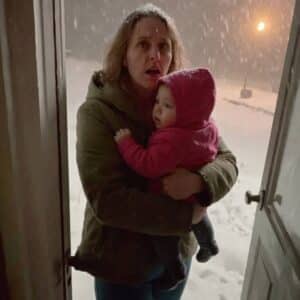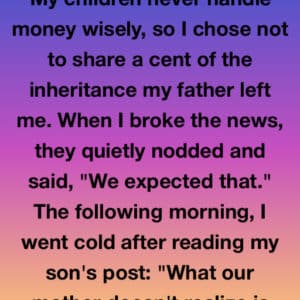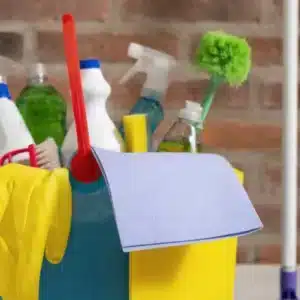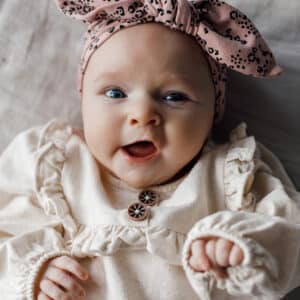I was ten the night my mother decided I didn’t fit in her new life.
At that age, you don’t understand words like “inconvenience” or “image.” You just know when love looks past you. My mother, Julia, had always been polished and impatient, the kind of woman who wore perfume to fold laundry and flinched at sticky hands. When she met Peter, everything sharpened—her cheekbones, her laughter, her ambition. Grocery runs required silk. Smiles required witnesses.
Peter came with a big house and a small boy named Owen, eight and golden. Julia loved him immediately, the way she used to love mirrors. “Sweetheart,” “my little man,” kisses on the forehead for spilled juice and undone shoelaces. I learned to leave the room before she noticed me. I learned to hold my breath around vases.
Once, Owen dumped a cup of orange juice onto the carpet. She soothed him. “Accidents happen.” A week later I knocked a cheap decorative vase off a console table and her hand flashed across my cheek so fast my ears rang. After that, I stopped touching anything in that house that wasn’t mine. Which left me with almost nothing.
I heard the plan through a cracked door—Julia’s voice thin with pleading, Peter’s clipped with certainty.
“She’s my daughter.”
“You knew what this was,” he said. “I don’t want someone else’s kid in my house. Owen needs stability. We need peace.”
A pause. The sound of a glass set down, careful. “Your mother will take her. She dotes on the girl.”
Those words found places inside me and stayed.
A week later, Julia sat me at the kitchen table and used her soft voice, the one she brought out for strangers and salespeople. “You’ll stay with Grandma for a little while, Hannah,” she said, eyes avoiding mine. “Until everything settles.”
I asked her how long “a little while” was. She kissed the top of my head like a deadline and drove me to Grandma Ruth’s house—a small place with a porch wrapped in roses and a living room that smelled like warm sugar and furniture polish. She set my suitcase beside the door and said, “She’ll be happier here,” as if happiness were a package she could drop at a stoop and forget.
Grandma took one look at me and understood. “I’ll take good care of her,” she said, and that was the last time I heard my mother sound relieved.
That night, Grandma made soup and sat on the edge of the guest bed while I ate. She smoothed my hair and said, “You’re safe now.” I slept without waking, without the feeling that footsteps were decisions.
Life with Grandma felt like an apology I hadn’t known to ask for. Lunches with little notes tucked into napkins. Sunday cinnamon rolls dusted with sugar. A seat saved at every concert, a voice cheering at every small win. When I turned thirteen she told me, “You may not have the mother you needed, but you have me, and I won’t drop you.” She didn’t.
I became a person in that house: honor roll, art club, a portfolio good enough to open a college door. Every milestone had Grandma’s hands clapping at the edge of it. Julia became rumor. I’d see her sometimes across town, sun on her hair, Owen’s hand in hers, the glossy postcard version of a mother. She never crossed the street.
Years layered themselves neatly. I got a degree in graphic design, a job at a small firm that believed in ideas more than hours. I called Grandma every night on my walk home. Sunday dinners stayed sacred. Then cancer arrived without manners. The diagnosis was short; the leaving was shorter. Four months from first scan to last breath. I held her hand through both. At the funeral, I watched for Julia, for a shape in the doorway, a single flower sent by a remorse I could respect. Nothing. The roses from Grandma’s garden sat on the casket like a promise only I could keep.
I moved into her house after, learning my way around the quiet. I kept her teacups on the shelf with the hairline crack at the rim she never made me throw away. I learned the timing of her roses, where the sun snagged first and last. It felt like taking over a conversation that had been going on for decades.
A year later, someone knocked on my door, and when I opened it, the past stood there with gray threaded through her hair.
“Hannah,” Julia said, soft. “You look so grown up.”
“What are you doing here?” I asked, because that was the only sentence big enough to hold the shock.
She asked to come in. I let her, the way you let in a cold front to see if the weather report was right. She stood in my entryway and said, “It still smells like roses,” as if the house belonged to her nose.
Then she said the words she’d practiced all the way over: Peter left. He took Owen. He took the house. He took the savings. She had nowhere to go. Could she stay. Just for a little while. Until things settled.
Something small and brittle inside me gave way. “You want to live here,” I said, “in Grandma’s house, with the girl you gave away so your boyfriend could have peace?”
Tears came like she’d saved them for this performance. “I made mistakes,” she whispered. “You were happier with my mother.”
“You didn’t even come to her funeral,” I said. My voice wobbled but held. “Do you have any idea what that told me?”
She started to say Peter’s name again, and I stopped her. “You chose,” I said. “You chose him. You chose his son. You chose the version of you that didn’t have room for me.”
She cried, and I stood in my own doorway and realized pity and love are not the same size. “Grandma always said love means showing up,” I told her. “You never did.”
“I’m your mother,” she said, like a password.
“You’re a woman who had a daughter,” I said, and it surprised me how gentle it sounded. “Family is something different.”
I didn’t tell her to leave. I didn’t ask her to stay. I folded a blanket and left it on the porch glider. In the morning, there was only a note under a flowerpot: I understand. I’m sorry. I hope you can forgive me.
Months later, a hospital called and asked if I was next of kin. I said yes because biology is a form you fill out even when you don’t believe in it. When I arrived, she was unconscious—small, shrunk down to the size of the girl she must have been before choices calcified. Malnourished, the nurse said. Tired all the way through. She died two days later without dramatic speeches or absolutions. The machines hummed and then they didn’t.
I stood by her bed, waiting for an emotion that never came. Anger had burned itself out years ago. What I felt instead was something like balance.
Grandma used to say, “Sometimes people pay for their mistakes without you doing a thing. Life keeps its own ledger.” I used to think that sounded cruel. Now I understood it was simply true. Julia built a life on a lie—that love could be managed like a budget, that you can cut a child out to make room for a man. Ledgers close. Walls crack. The house goes to someone else.
I kept building. On Sunday afternoons I deadhead the roses, hands careful, sun on the back of my neck. I keep Grandma’s tea habit and her habit of setting an extra plate. I text the neighbor girl encouragement before her art show. I show up. It turns out the lesson is not about revenge but routine: the daily tending that turns a life into a place someone can stand.
Sometimes I pass the big house across town and see a new family at the windows—faces I don’t know, laughter I don’t recognize. I hope they’re kind to one another. I hope the boy gets soothed when juice spills. I hope the girl learns she can touch the vase and nothing breaks that matters.
On the first warm morning of the year, a rose opens like an answer. I crouch to breathe it in, and the old ache rises and recedes. “Thank you,” I tell the garden, and by that I mean Grandma, and by that I mean the version of me who waited at a window until a car turned the corner and didn’t pull into the drive. Thank you for the house. Thank you for the hand that never let go. Thank you for teaching me that love is a verb with shoes on.
I was ten when my mother decided I no longer belonged in her world. I’m not ten anymore. I belong to my own.





